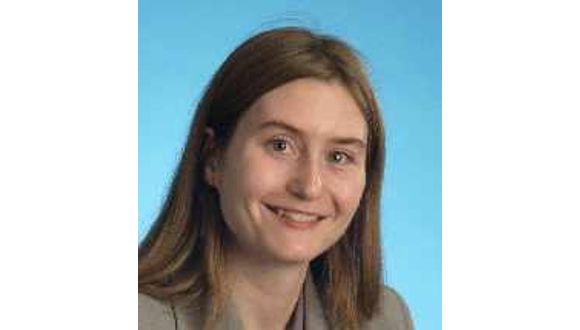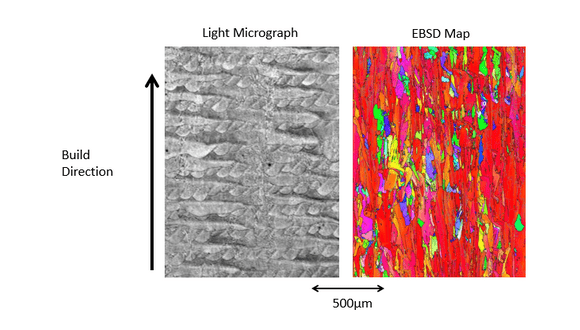Thu, 10 March, 2022
TWI is currently working on a Joint Industry Project (JIP) to quantify the sour service limits of laser powder bed fusion Alloy 718 in accordance with ISO 15156/NACE MR0175 and API 6ACRA.
As additive manufacturing has advanced, it is now possible to routinely manufacture high quality complex parts from a range of different metallic materials.
However, there are applications, such as in the oil and gas industry, where these components are subjected to corrosive environments. In order to operate in these, often sour environments; it is necessary to ensure that materials are accepted by oil and gas standards.
With phase one testing for the project now taking place, we took some time to speak with principal project leader, Briony Holmes to find out more about the JIP, the benefits for industry, additive manufacturing in industry, and her own work at TWI.

This project aims to see alloy 718 accepted by standards for sour service, why was this alloy chosen for the project in particular?
This alloy was chosen by the sponsor group because Alloy 718 is very useful in highly corrosive, sour environments. It is a relatively expensive material, and can be challenging to machine due to its high strength (some grades are >150ksi (1040MPa) yield strength), so it was felt that there would be benefits if it could be manufactured by additive manufacturing (AM). The project will include detailed characterisation of the AM 718, in order to assist in optimisation of this manufacturing method for Alloy 718.
As far as the standards themselves go, can you explain why they are so important to industries such as oil and gas?
Standards are crucial to ensuring health, safety and environmental protection. They provide guidance to the industry on how to best design, manufacture and operate using the many different materials used in the oil and gas industry. They can also reduce the extent and expense of qualifying material for each individual industry project.
What are the benefits of this project for industry?
- Unlock the full potential of additive manufacturing in the oil and gas industry
- Enable new and sophisticated AM manufacturing and design approaches to achieve:
- Cost savings: By reducing material consumption and consolidating complex assemblies into single parts
- Downtime reduction: Reducing long lead times on urgently needed castings and forgings, from months or years to hours or days
- Environmental savings: Enabling a new generation of AM design approaches to reduce waste and achieve increased operating efficiencies and reduced energy costs
Who are TWI working with on this project?
There are currently seven sponsors, including manufacturers and end users. The current sponsors are BakerHughes, Chevron, ConocoPhillips, Halliburton, Shell, Total, and Unity.
Additional sponsors are still welcome to join and become involved in discussions.
More broadly, additive manufacturing (AM) has been advancing for some years now, what are the reasons for wider adoption of AM by industry?
AM offers the potential for less material wastage, and more rapid material manufacturing. Processing is now becoming more routine due to machine developments and reproducibility is being aided by work to standardise and certificate AM processing.
Can you also tell us a little about yourself? What is your background and what are your main areas of work at TWI?
My background is in metallurgy and corrosion engineering. I work with my colleagues across TWI to provide support to our Industrial Member companies on topics relating mainly to the metallurgical characterisation and performance of stainless steels and other corrosion-resistant alloys.
Are there any notable projects that you have been involved in that you can tell us about?
One current project is Geosmart, an EU funded collaborative project for the geothermal industry. This project has 19 partners and aims to optimise and demonstrate innovations to improve the flexibility and efficiency of geothermal heat and power systems.
Finally, what is it about TWI that you feel makes it a special place to work?
TWI feels a special place to work thanks to the variety of technologies, projects and people that one works with.
 Figure 1. Variation in Material Microstructure Selective Laser Melting Nickel Alloy 718
Figure 1. Variation in Material Microstructure Selective Laser Melting Nickel Alloy 718